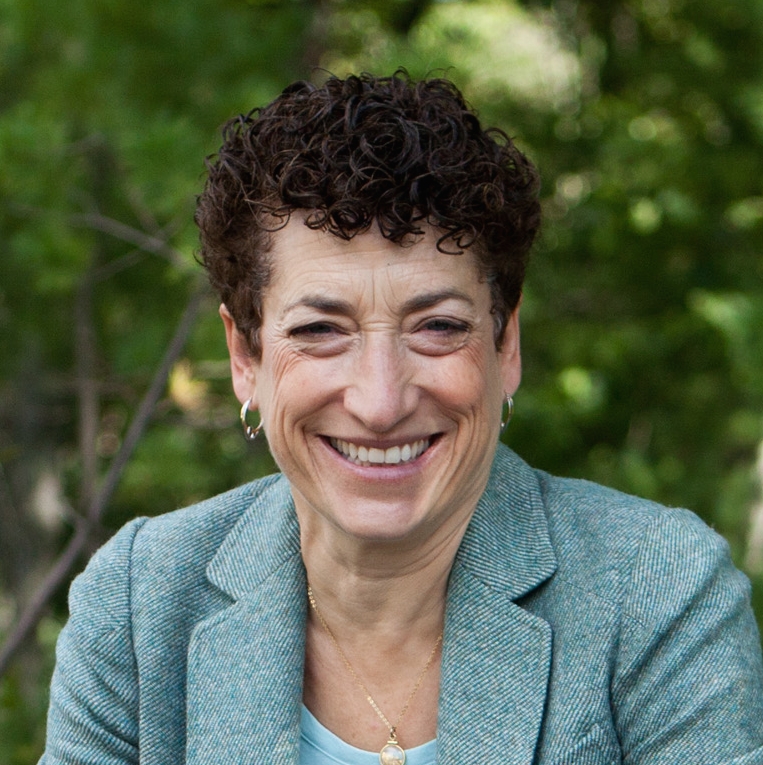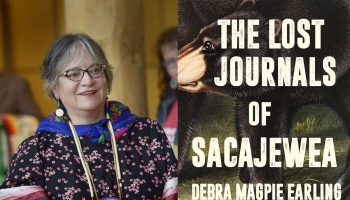SARAH VEST – STAFF WRITER

In the age of the internet, there is an overwhelming amount of information available that fosters mistrust of science.
Naomi Oreskes, Week Three’s Chautauqua Literary and Scientific Circle author, poses the question, “Why trust science?,” and then answers it in her book of the same name.
Oreskes is a historian of science. She became the Henry Charles Lea Professor of the History of Science and affiliated professor of earth and planetary sciences at Harvard University in 2013, after 15 years as a professor of history and science studies at the University of California, San Diego.
She has worked on studies of geophysics, environmental issues such as global warming, and the history of science.
In addition to being a professor, she is author or co-author of seven books and over 150 articles, essays and opinion pieces, including The Collapse of Western Civilization: A View from the Future, Discerning Experts: The Practices of Scientific Assessment for Environmental Policy and Science on a Mission: How Military Funding Shaped What We Do and Don’t Know about the Ocean.
In her CLSC lecture at 3:30 p.m. EDT Thursday, July 15 on the CHQ Assembly Video Platform, Oreskes will highlight the main points of Why Trust Science?
She wants to focus on the “social character of science” and how it makes scientific claims stronger, not weaker, than they would be if they were the work of solitary geniuses.
In 2010, Oreskes co-authored Merchants of Doubt with Erik Conway, which attempted to fight disbelief in climate change by identifying parallels between that debate and earlier public controversies.
For example, they highlighted the tobacco industry’s campaign to conceal the link between smoking and serious diseases, like cancer.
On the other hand, Why Trust Science? takes a different approach in an attempt to combat “doubt-mongering.” It does this by explaining how science works and by attempting to affirm that, according to Oreskes, in most circumstances, “(people) have good reason to trust settled scientific claims.”
Science is a very powerful way of understanding the world, and we can use it to good effect if we understand its strengths and weaknesses. But if we expect the impossible, we’ll be disillusioned, disappointed, and we may even become vulnerable to backlash and conspiracy theories.”
– Naomi Oreskes
Author,
Why trust science?
Sony Ton-Aime, the Michael I. Rudell Director of the Literary Arts, said that this book is a “scientific book made accessible to everyone” in that you don’t need to have a doctorate to be able to read and enjoy it.
According to Ton-Aime, Oreskes was very conscious of the audience she was writing for. This hearkens back to this year’s CLSC theme of “The People” because it is the minds of people, scientific or otherwise, that drive the premise.
“The world that we are making is very much influenced by (science),” Ton-Aime said. “But also, we are influenced by the world as well. It’s a perfect circular process.”
In the afterword of her book, Oreskes writes that “all social arrangements rely on trust,” whether one is putting their faith in a doctor, a plumber or a shoe salesman. If people stopped trusting experts, “society would come to a halt.” What separates scientists, and science, from other trust-reliant social arrangements is “the centrality of the social vetting of claims.”
For Ton-Aime, the “social vetting” process is an essential part of the book. He thinks that scientists cannot separate their personal background from the studies they are doing. Biases always slip through, and that is what he finds interesting about the “social vetting” process and Oreskes’ call for diversity within this system.
“We have different perspectives, and therefore when someone makes a mistake, based on their biases, someone from a different background or different views can bring an emphasis to correct that mistake,” Ton-Aime said.
For those who do trust the scientific community, it can be frustrating to deal with those who don’t. However, Oreskes cautions against being dismissive of their thoughts or concerns.
“It’s always possible to reach people. If it weren’t, I wouldn’t be a professor or write books,” Oreskes said. “But you have to take their questions seriously. This book doesn’t dismiss the question, ‘Well, why should we trust science?’ — even if some of the people who ask it are belligerent. Rather, the book takes the stance: ‘That’s a fair question and it deserves a serious answer.’ ”
What she really wants to see come out of her lecture — and to a larger extent, her book — is for people to understand science not in an abstract sense, but a realistic one. She thinks there is a skewed perception among the public over what science can and cannot do.
“Science is a very powerful way of understanding the world, and we can use it to good effect if we understand its strengths and weaknesses,” Oreskes said. “But if we expect the impossible, we’ll be disillusioned, disappointed, and we may even become vulnerable to backlash and conspiracy theories.”




